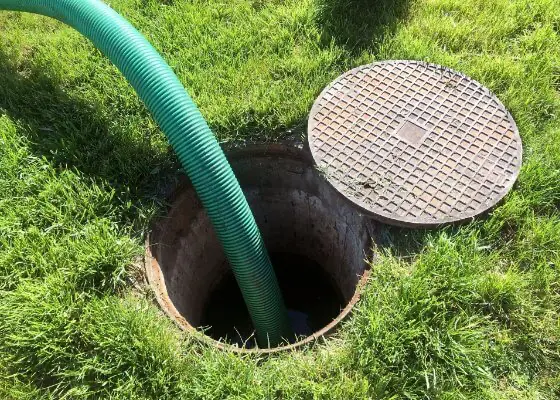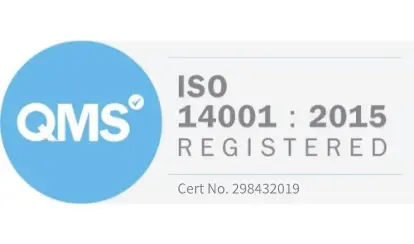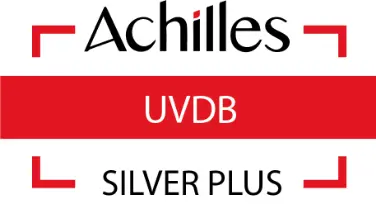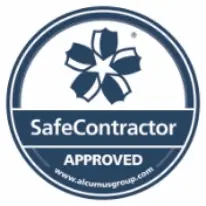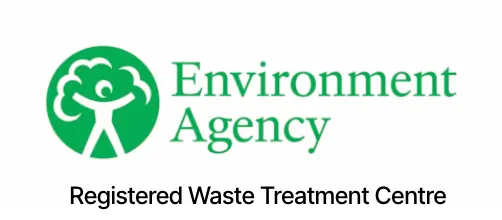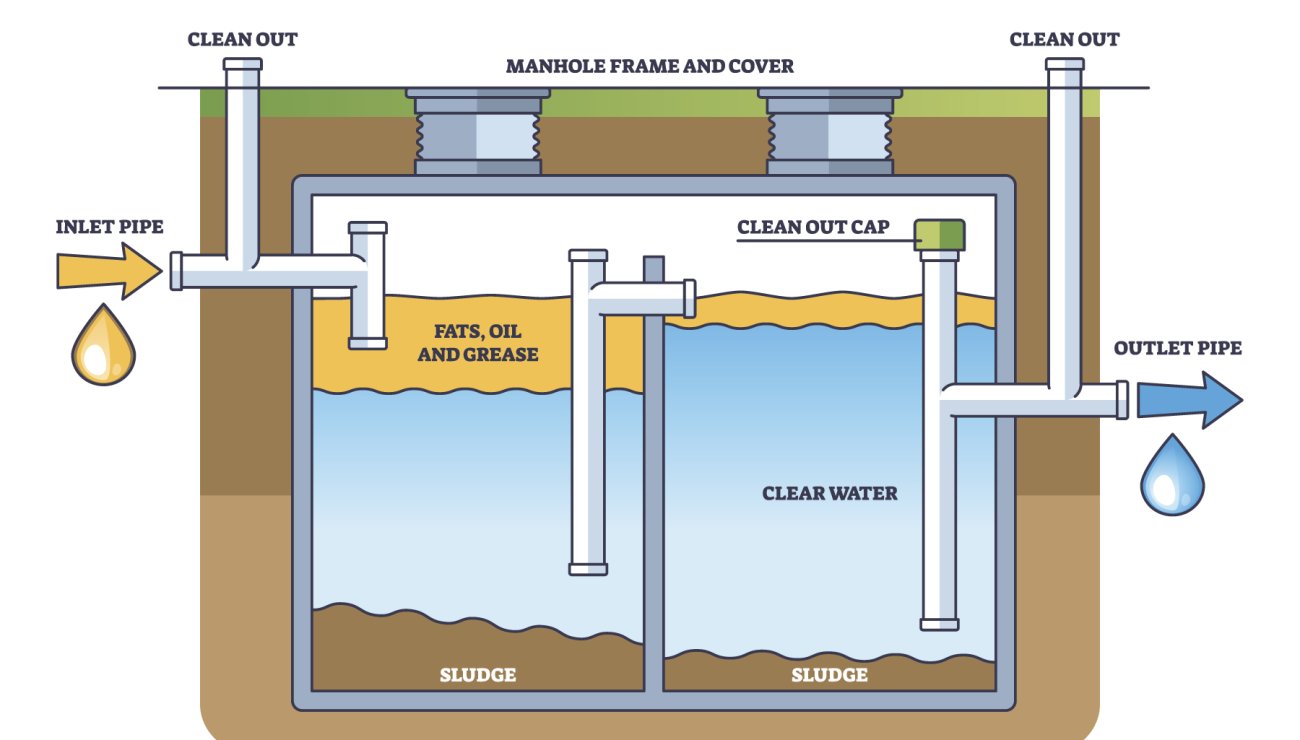
A grease trap or grease interceptor is a specialised receptacle designed to intercept wastewater containing oil, grease, or fat before it enters the sewer system. The primary purpose of a grease trap is to prevent these substances from causing blockages in sewers, which can lead to fatbergs. Grease traps or interceptors are particularly essential in commercial kitchens where the use of cooking oils is widespread.
Waste Management in Facilities Without Sewer Access
Many hospitality businesses and buildings lack access to mains sewer drainage systems. In these cases, all liquid waste generated on-site, including sewage, wastewater, and grease trap waste from commercial kitchens, must be stored in holding tanks. These tanks require regular emptying to function properly. It is important to note that discharging such waste into natural watercourses is illegal, and proper disposal at a licensed waste treatment facility is mandatory.
Challenges Faced by Secluded Hotels
Hotels located in remote or secluded areas often do not have direct access to sewer systems. As a result, these hotels must rely on large wastewater storage tanks strategically placed around the facility. Liquid waste is typically pumped into these tanks, with separate tanks often designated for general wastewater and grease trap waste. A malfunction in the pumping system can lead to operational disruptions, potentially necessitating temporary closure until the issue is resolved.
Case Study: Tortworth Court Hotel – Grease Traps & Sewage Management
Overview
Tortworth Court Hotel, a distinguished establishment located in Gloucestershire, has been a long-standing client of Andersons Waste Management. The hotel relies on our services for the regular and efficient management of both sewage and grease trap waste. This case study highlights our ongoing partnership and the critical support we provided during an unexpected equipment failure.
Routine Waste Management Services
At Tortworth Court Hotel, all liquid waste, including sewage and kitchen grease, is collected from various points around the hotel grounds and pumped into large storage tanks. Andersons Waste Management is responsible for the scheduled emptying of these tanks.
On a regular basis, we remove 4,000 gallons of sewage ensuring that the hotel’s waste management systems function smoothly and efficiently. Additionally, we handle the monthly removal of approximately 2,000 gallons of grease from the hotel’s commercial kitchens.
Regular emptying of these grease traps is essential for maintaining cleanliness, preventing blockages, and ensuring that the kitchens remain operational.
Emergency Response: Pump Failure Incident
Recently, Tortworth Court Hotel experienced an unexpected issue when the pumps responsible for transferring waste into the storage tanks malfunctioned. This failure posed a significant risk to hotel operations, as the waste levels in the tanks quickly began to rise.
The hotel promptly contacted Andersons Waste Management, requesting immediate assistance.
In response, we initiated daily tankering services to manage the sewage levels and keep the hotel fully operational while the issue was resolved. Our team maintained this heightened level of service until the engineers identified the fault and completed necessary repairs to the pumping system.
Addressing Unforeseen Challenges
Tortworth Court Hotel, like many large facilities, occasionally faces unforeseen challenges that necessitate swift action. Events such as heavy rainfall, increased guest occupancy, or equipment failures can lead to a sudden rise in liquid waste, requiring additional tankering services at short notice.
Andersons Waste Management is committed to supporting our clients in these situations. We provide 24/7 on-call services to handle emergency liquid waste collections, ensuring minimal disruption to operations.
Commitment to Excellence
Our ability to respond promptly to emergencies is further supported by our in-house waste treatment plant, which is equipped to handle certain types of liquid waste. This facility can be made available even when other water treatment plants are closed, providing our clients with a reliable solution in critical situations.
For any inquiries or immediate assistance with liquid waste management, please contact Andersons Waste Management at 01454 222888. Our team is dedicated to delivering the highest level of service and ensuring your waste management needs are met efficiently and professionally.

